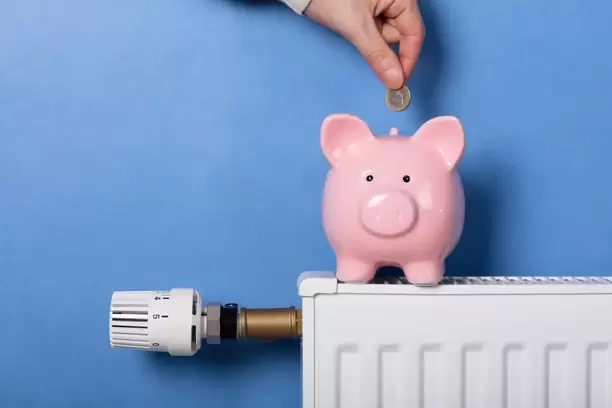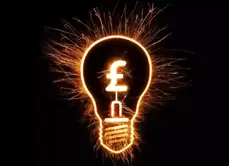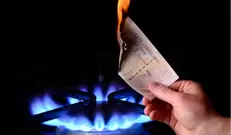Understand your energy tariff – it could save you £££££s.
You could save up to £497 on your energy bills! |
|
Around 12 million people in this country are on expensive standard energy tariffs.
If you’re one of these people, you’re actually paying hundreds of pounds more than you should be, and you may not even realise it – £320 more, to be exact. ARE YOU PAYING MORE THAN YOU SHOULD BE? So, there’s no argument – taking a few minutes to understand tariffs is well worthwhile. It can seem a complex business, but it doesn’t have to be. |
|
|
What is a standard tariff, and am I on one?
This is the number one question to ask. A Standard Rate Tariff (SRT), in the jargon, just means an energy company’s default tariff. You could call it the ‘do nothing tariff’, because if you do nothing, this is the tariff you’ll end up on. And that’s bad news, because it’s almost always the most expensive. Suppliers sometimes give it different names, such as an ‘evergreen’ tariff. The name doesn't matter, the way it works does. It’s variable because it goes up and down with market prices. The bottom line is you don’t know what you’ll be paying for a unit of energy from one month to the next. They’re not always a supplier’s most expensive tariff, but, if you’re on one, you definitely want to check whether you can switch to a better rate – and you almost certainly can. Why are people on these tariffs at all? One reason is that they’re flexible. Because they’re variable, the supplier can’t charge you for switching, so you can end the contract at any time. But the number one reason is because people do nothing when the fixed tariff they’re on comes to an end. They’re too busy, they forget, or they simply don’t realise they’ll be paying more simply by doing nothing. How do I check if I’m on a standard tariff? If you haven’t switched energy tariff for a year or more, you are probably on an SVT. But the only way to be sure is to either check your bill – the tariff will be on there – or ask your supplier. Watch out, though, because, as we said above, the SVT might be given a fancy name. Ask your supplier if it’s their standard rate tariff. DON'T GET STUCK ON A SINGLE VARIABLE TARIFF |
|
|
What about other types of tariffs?
So, if the standard tariff is usually a bad thing, what about the other types, and how do you know which one is right for you? Fixed tariffs These are usually the way you get the cheapest deal. Use our comparison tool and look for the cheapest energy supply to your address (prices can vary according to where you live) and then lock that price in by ‘fixing’ it. A fixed tariff does what it says on the tin. It offers a guaranteed price for your gas or electricity, or both, for a set period of time, usually 12 months. You can budget because you know the rate you’ll be charged for energy will stay the same for the length of the deal. Obviously, that doesn’t mean your payments won’t go up! If you use more energy, your bills will rise, whatever tariff you’re on. It is the price per unit of energy that is fixed. What about fees for leaving? The price you usually pay for this certainty is a fee if you decide to leave the deal early. Not all suppliers have an exit fee, but many will. But, if you find a much cheaper deal while you are still on a contract you can quickly work out what you’ll save versus what you’ll have to pay in exit fees. So, it’s a good idea to monitor the market, even when you’ve already fixed. Under Ofgem rules, you can’t be charged any exit fee if you switch supplier between 42 and 49 days before your current deal ends – and your supplier has to let you know this is happening within this timeframe. Dual fuel tariffs This is a tariff – almost always a cheaper one – that’s available when you choose one supplier for both electricity and gas. Not only can it save you money, but it’s also easier to have just one supplier to deal with. What about exit fees? Exit fees work the same way as they do with fixed deals – they apply to some deals and not others. While dual fuel deals can often represent good savings, that’s not always the case. It’s definitely worth comparing one with the cost of splitting your supply of gas and electricity between two single, fixed deals. |
|
|
What’s an online tariff?
These are special rates offered in return for you managing your whole account online. Not only will you monitor your bills online, but you’ll also need to send meter readings this way –unless you have a smart meter. Basically, everything’s paperless, and if you’re comfortable with this, you can often make extra savings. Remember, if you like to have a physical record of what you’ve used and spent, you can always download statements and bills and print them out. This is a good choice if you are happy to do everything online because you’ll often find this is the cheapest fixed tariff available. Pre-payment tariffs There’s no way round this, pre-payment tariffs are usually not great deals. In fact, they’re downright expensive. You pay in advance for energy by ‘topping up’ your meter either by buying tokens, adding credit to a key, or paying online or on the phone. It’s almost exactly like a pay-as-you-go mobile. These tariffs are aimed at people who either have no credit history or who have a bad one. If you rent, you may find your landlord has installed a pre-paid meter, so they are not left with debts. If you can switch to a pay monthly option, do so as soon as you can because it will almost certainly be cheaper. If not, you can still use our comparison tool to get the best pre-paid tariff available to you. There is usually a big variation between the most expensive and the cheapest pre-payment tariffs. What about Green tariffs? If you want to do your bit for the environment, then a Green tariff might be worth looking at. But don’t expect to save cash with this option. The work in one of two ways, usually – either the supplier is committed to using sustainable energy sources, or they undertake to make contributions to environmental projects. Bear in mind, these tariffs tend to be more expensive, but you can still shop around and compare to find the best for your needs and wants. |
|
Save £££ on your energy bills |




